Iran calls for ‘nonpolitical cooperation’ from IAEA as Grossi visits Tehran
Head of Iran's nuclear energy organization has called for "nonpolitical cooperation" from the the International Atomic Energy Agency (IAEA) after meeting the UN body's director general Rafael Grossi in Tehran.
Mohammad Eslami, the head of the Atomic Energy Organization of Iran, made the remarks Saturday in a joint news conference with Grossi who arrived earlier in the day for his third visit under the new Iranian administration.
Grossi said he had been in regular contacts with his Iranian counterpart, but the two sides "did have a number of important matters" that had not be resolved for a long time and, hence, they had now "decided to try a practical, pragmatic approach" to overcome them.
The visit comes as talks in Vienna between Iran and the P4+1 group of countries aimed at reviving the 2015 deal, officially known as the Joint Comprehensive Plan of Action (JCPOA), are coming to a close.
Grossi said the Vienna talks and the Iran-IAEA cooperation are interrelated, adding if Iran and the IAEA do not reach an agreement on safeguards issues, it will be difficult to reach an agreement in the Austrian capital.
Eslami said he reviewed with Grossi the remaining issues on the IAEA chief's previous trips to Iran and those of Iranian officials to Vienna, and "reached a conclusion".
“It was decided to exchange the necessary documents between Iran and the IAEA” by the end of the Iranian month of Khordad on June 21, he added.
The remaining issues, Eslami said, should be resolved in a normal way and hoped that “the new interaction and path we are establishing” with the agency would lead to Iran’s development.
“We hope that the process of cooperation will be nonpolitical and the Iranian nation will see its effects in their lives," he said.
"Political influence and lobbying should not impact the decisions of the IAEA. Iran and the IAEA should follow their issues in a completely professional way and behave within the framework of expertise," Eslami said. "There is no room for any political action."
The IAEA chief later met Iran’s Foreign Minister Hossein Amir-Abdollahian.
The Vienna talks began last April on the assumption that the US, under the Joe Biden administration, is willing to repeal the so-called maximum pressure policy pursued by former president Donald Trump.
Tehran says it won’t settle for anything less than the removal of all US sanctions in a verifiable manner. It also wants guarantees that Washington would not abandon the agreement again.
Grossi said he was committed to advancing the IAEA's cooperation with Iran and helping the Iranian people move towards prosperity.
"It is very important to reach a mutual understanding for cooperation. Nuclear energy is very important for the development of countries, including Iran."
However, he took a handsoff approach toward the question of documents in the custody of the IAEA or its reports being leaked to news agencies and certain regimes.
"I have asked myself this question many times. Unfortunately, some members do not respect this secrecy, and this is unfortunate," he said.
"There has been a lot of talk in the agency about making rules, but when someone wants to release information, it can't be stopped," he added.
Prior to his trip to Tehran, the IAEA chief tweeted that his visit takes place at “a critical time but a positive outcome for everyone is possible.”
I'm traveling to #Tehran today for meetings with Iranian officials tomorrow to address outstanding questions in #Iran 🇮🇷. This is a critical time but a positive outcome for everyone is possible. pic.twitter.com/teZxLLEch2
— Rafael MarianoGrossi (@rafaelmgrossi) March 4, 2022
"It is expected that general issues between us and the agency will be reviewed regarding how to pursue various matters in the future. God willing, there will be an understanding," AEOI spokesman Behrouz Kamlavandi said Saturday.
In a post on his Twitter account, Russia’s Permanent Representative to International Organizations in Vienna Mikhail Ulyanov wished Grossi “fruitful and successful” discussions with Iranian officials on outstanding safeguards issues.
The #IAEA Director General Mr. Rafael Grossi arrived in Iran to hold talks on outstanding safeguards issues. I hope the discussions will be fruitful and successful. Good luck, Rafael and dear Iranian counterparts!
— Mikhail Ulyanov (@Amb_Ulyanov) March 4, 2022
In Tehran, Grossi sidestepped questions about Israel's threats against Iran's nuclear energy program and its declaration that the regime would continue its acts of sabotage irrespective of the results of the Vienna talks.
The agency's focus, he said, was on working with Iran and doing its job with professionalism.
Grossi was also asked about numerous cases raised against Iran on the basis of alleged Israeli documents, claiming that the IAEA was not influenced by any party and that the basis of its judgments was independent of the opinions of other sides.
Eslami said the aim of the JCPOA and other negotiations is to dismiss and fend off accusations against Iran, warning that "if someone wants to obstruct the negotiations with false claims, we will use our authority and deal with it".
"We are very optimistic that the hurdles created by the enemies on the path of the country's development have been eliminated and the measures have resulted in the advancement of Iran’s nuclear movement, a clear example of which were the actions of the Zionist regime and the assassination of nuclear scientists."
With the Vienna negotiations being in the final rounds, "one of the red lines of Iran is that the alleged cases are closed forever and no disturbance is caused", Eslami said.
“The agreements reached are steps that are in the form of mutual cooperation and provision of documents that should lead to cooperation. The fake regime of the Zionist regime is not bound by any law and has placed the greatest obstacle in the way of Iran's peaceful nuclear program, but it will not achieve any result,” he added.
The United States left the JCPOA in 2018 and began to implement what it called the “maximum pressure” campaign of sanctions against the Islamic Republic, depriving the country of the economic benefits of the agreement, including the removal of sanctions, for which Iran had agreed to certain caps on its nuclear activities.
In the meantime, the other parties to the deal, in particular France, Britain and Germany, only paid lip service to safeguarding Iran’s economic dividends as promised under the JCPOA, prompting Iran – after an entire year of “strategic patience” – to reduce its nuclear obligations in a legal move under the deal.
As Iran, Russia conclude drill, ex-US Army officer warns of surprises
VIDEO | Press TV's news headlines
UN investigators: ‘Hallmarks of genocide’ found in Sudan’s El Fasher
UN rapporteur Albanese: Israel’s West Bank land grab 'will consolidate annexation'
Three Palestinians killed in Israeli raids on Gaza on first day of Ramadan
Hundreds of Dutch nationals served in Israeli military amid Gaza genocide
‘Playing with fire’: Russia sternly warns against any attack on Iran
VIDEO | Iran, Russia naval forces rescue hijacked ship in mock operation during naval drills


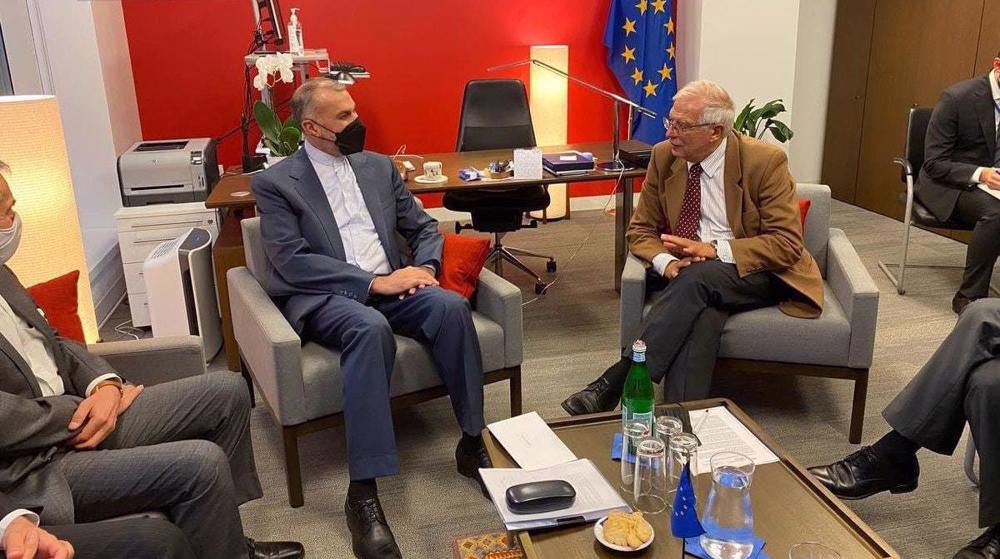
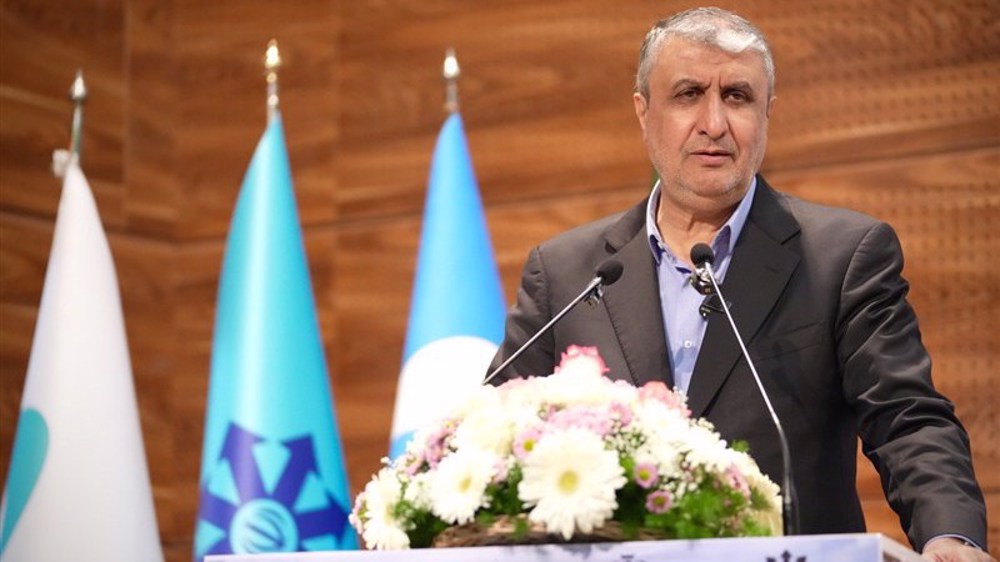
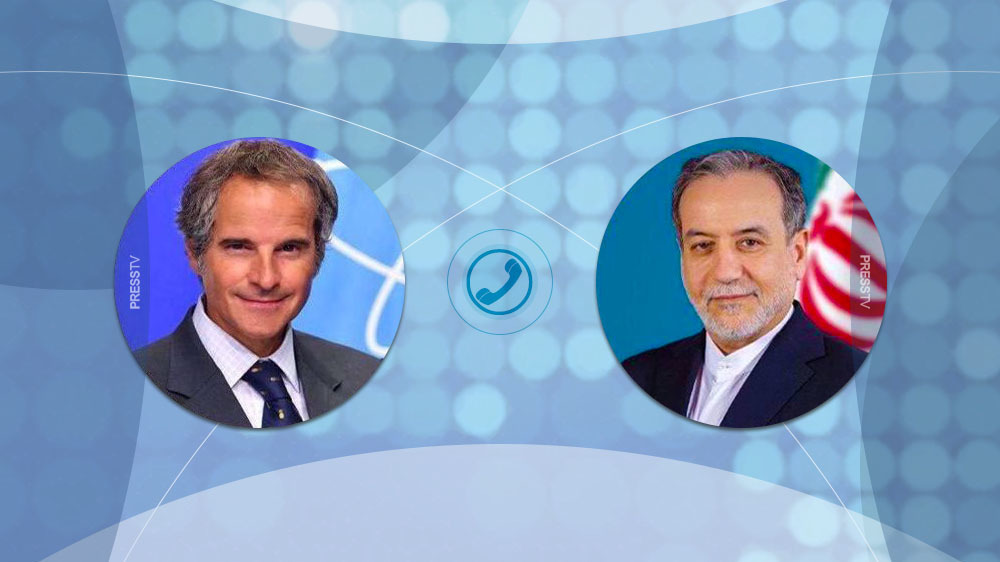
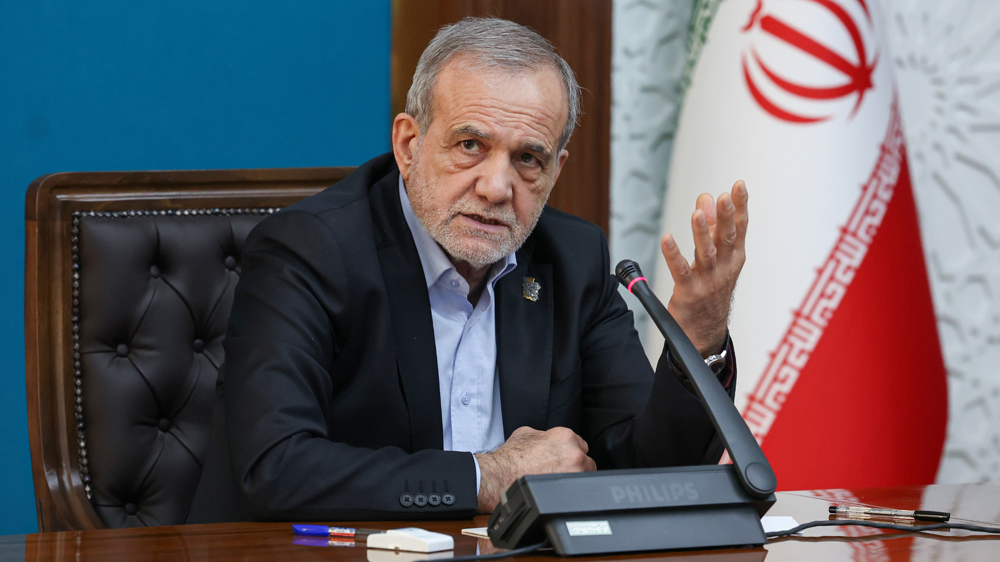



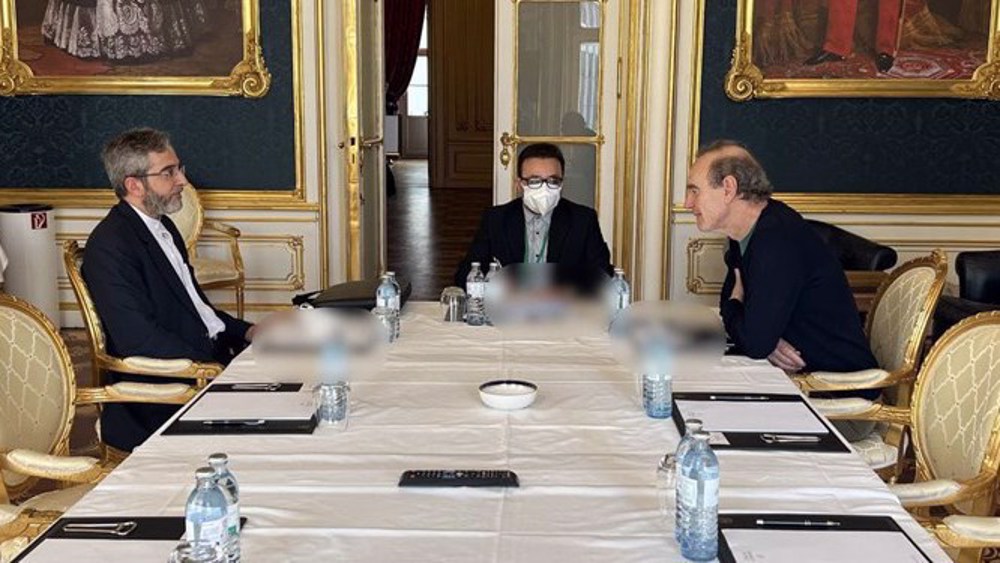
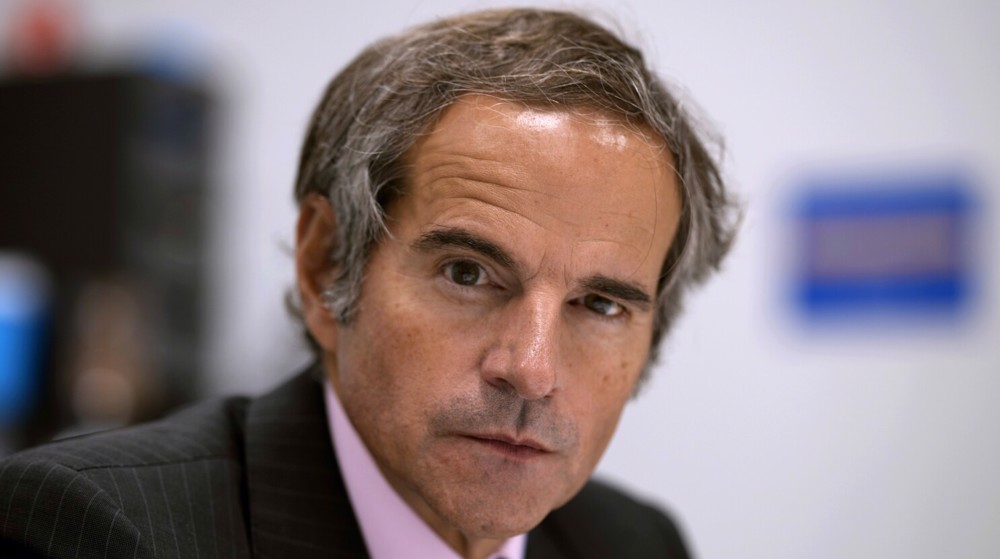
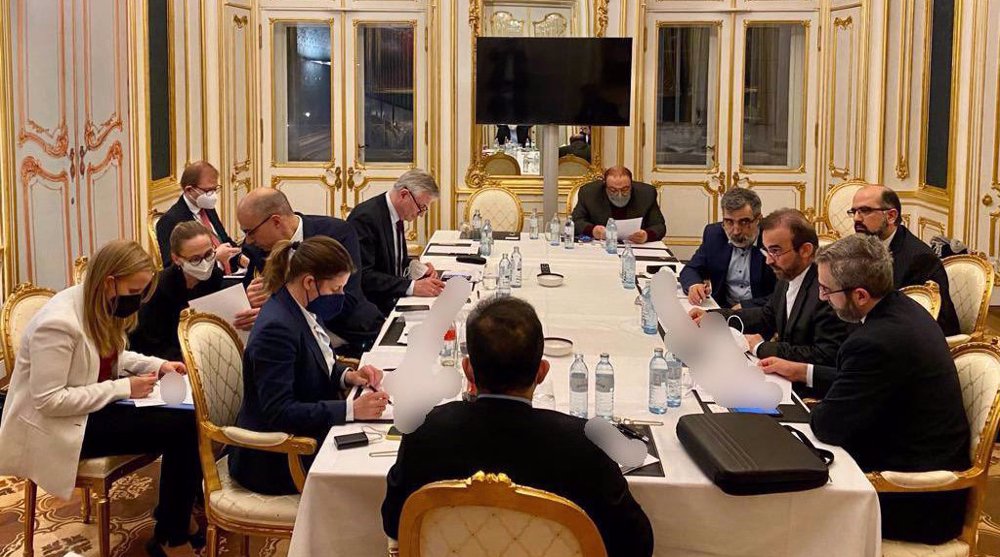
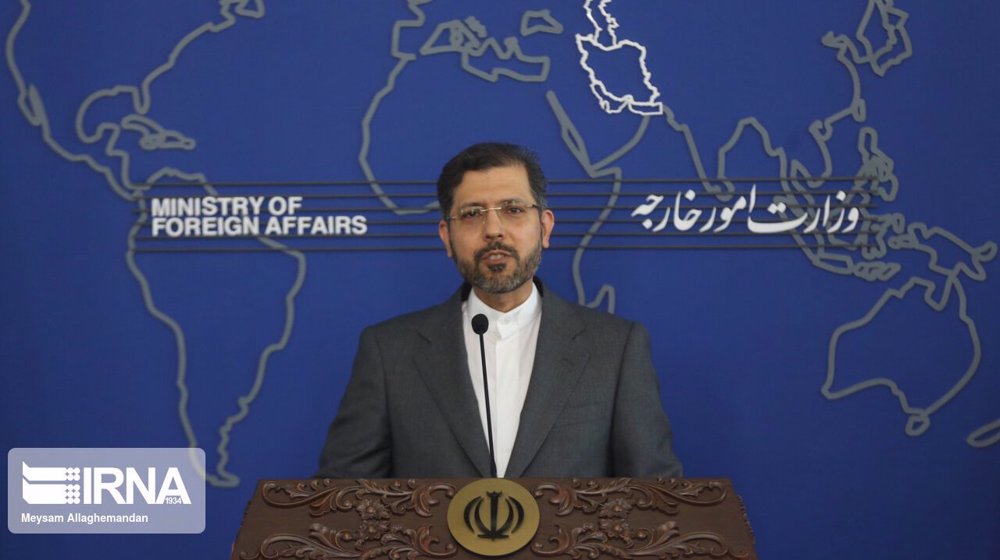
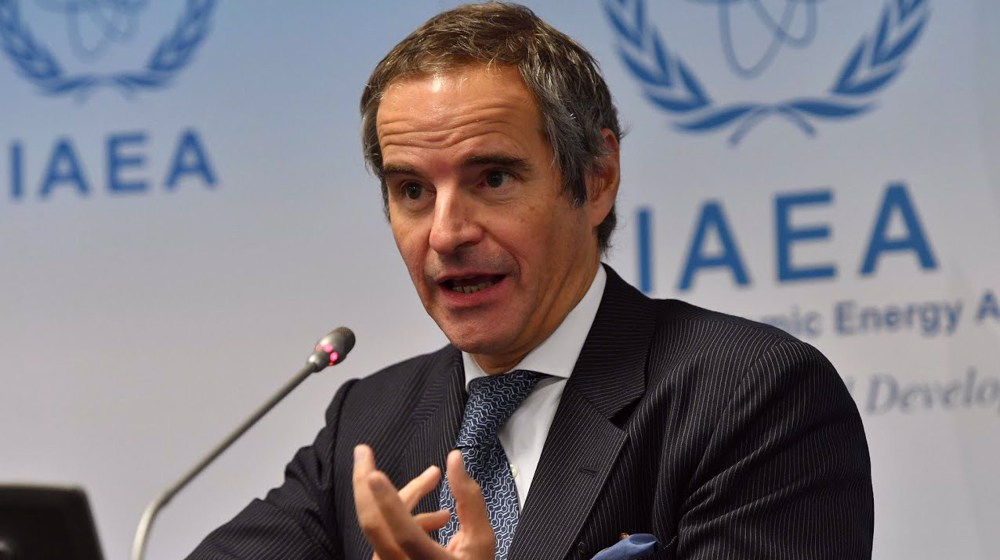

 This makes it easy to access the Press TV website
This makes it easy to access the Press TV website